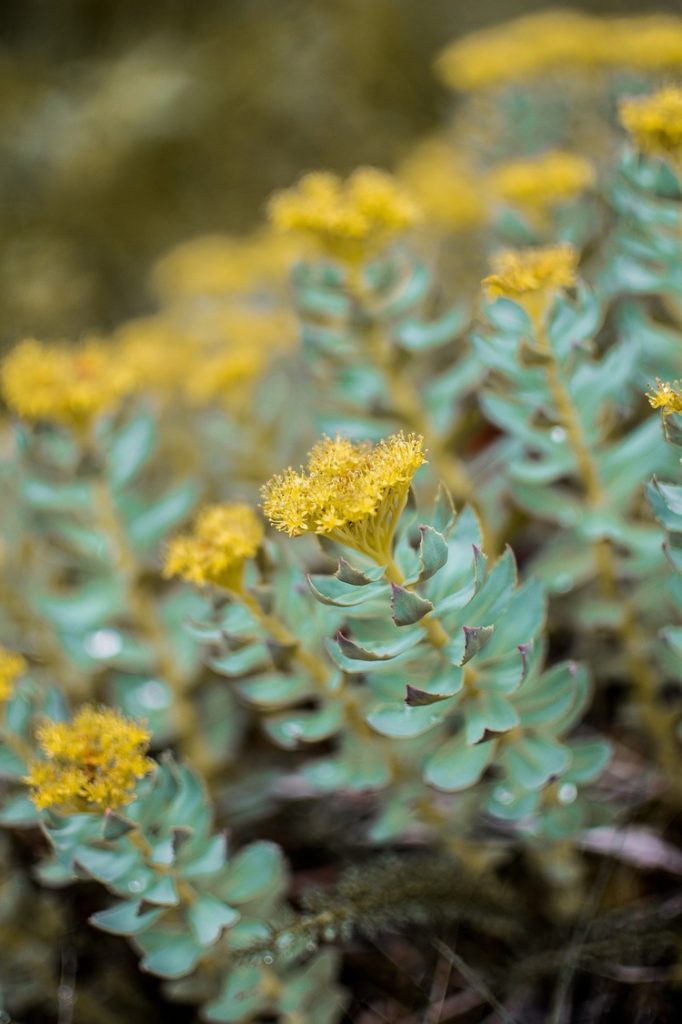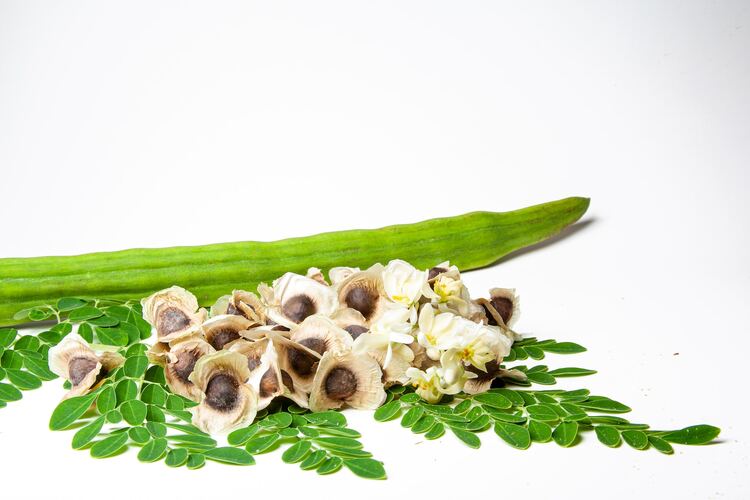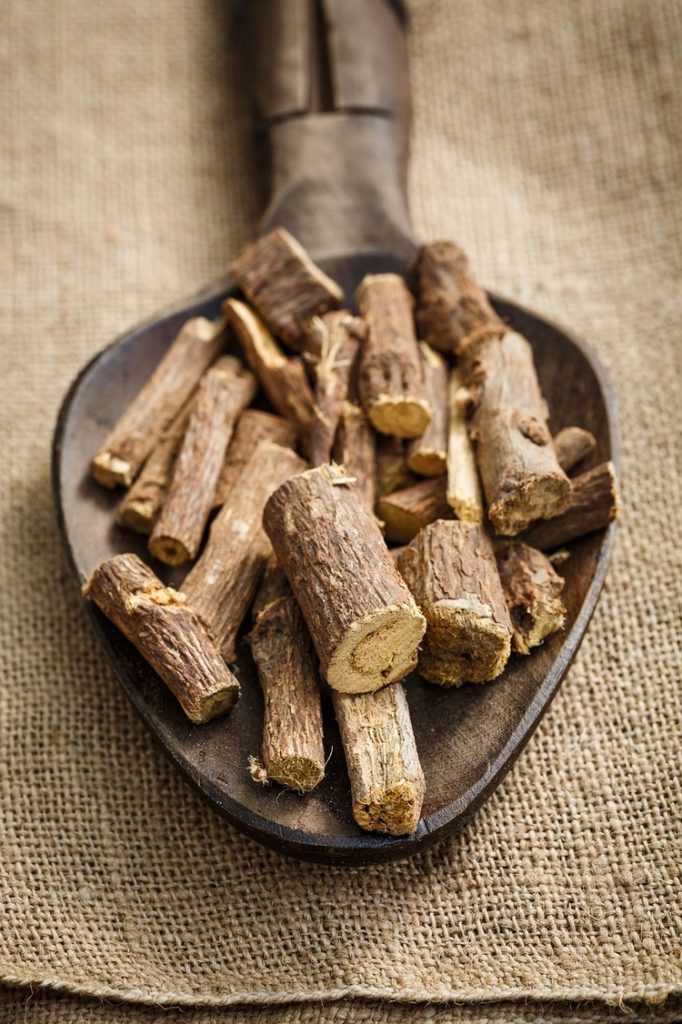In today’s fast-paced world, you must find ways to nourish your body and optimize your well-being. One way to achieve this is through the consumption of adaptogen teas. These remarkable beverages possess a unique quality that helps your body manage stress more effectively, promoting overall health.
Adaptogen teas are made from various herbs used in traditional medicine systems for centuries. When consumed regularly, these plants can aid in your body’s ability to resist multiple stressors, such as physical, chemical, or biological agents. By incorporating adaptogen teas into your daily routine, you’re not only enjoying soothing drinks but also providing your body with the support it needs to thrive in today’s hectic world.
This is an exciting topic that deserves to be unpacked. We get into details below.
Please note: This article contains affiliate links, meaning I may earn a commission if you make a purchase by clicking a link. Of course, this comes at no extra cost to you and helps me keep offering readers solid information.

Understanding Adaptogen Teas
Adaptogens are natural substances that work with your body to help you adapt to stress, maintain balance, and promote equilibrium. They support the health of your nervous system, specifically the hypothalamic-pituitary-adrenal (HPA) axis and the adrenal glands. By doing so, the body can better manage mental, emotional, and physical stressors, ultimately improving your overall well-being.
Adaptogen teas are typically made from a combination of adaptogenic plants and herbs. Also, they can be acquired as capsules, powders, or tinctures.
Important: While adaptogens have a long history of traditional use, scientific research on their effectiveness is still ongoing, and their specific mechanisms of action are not yet fully understood. As with any dietary supplement or herbal remedy, always consult a healthcare professional before adding adaptogen teas to your routine, especially if you’re pregnant, breastfeeding, or taking medications. A
daptogens can have side effects and may interact with prescribed medications. Remember that the FDA does not regulate supplements and tinctures, so opt for high-quality, reputable brands to ensure safety and efficacy.

Common Adaptogen Teas’ Ingredients
We discuss some of the most noticeable adaptogens below.
Ashwagandha
Ashwagandha is a herbaceous plant native to the dry regions of India, Pakistan, and Sri Lanka. It belongs to the Solanaceae family, which includes other well-known plants like tomatoes, potatoes, and peppers.
Ashwagandha is a small shrub with yellow flowers and red fruit, although the roots are the most commonly utilized part of the plant.
This plant can help the body manage stress by regulating cortisol levels and supporting the nervous system. It reduces inflammation, bolsters the immune system, and promotes relaxation.
Ginseng
Ginseng is a highly valued herb used for centuries in traditional medicine, particularly in Asian cultures. It belongs to the genus Panax and is available in different varieties, with the most commonly known ones being American ginseng (Panax quinquefolius) and Asian ginseng or Korean ginseng (Panax ginseng).
Ginseng has a distinct appearance with its fleshy, forked root that often resembles the shape of a human body. The root is the part of the plant that is primarily used. It contains a range of active compounds, including ginsenosides, which are believed to be responsible for its potential health benefits.
It’s known to enhance concentration, physical performance, and protect the body from stress. Drinking a ginseng-infused tea can help maintain hormone homeostasis and reduce mental fatigue.
Rhodiola
Rhodiola, or Rhodiola rosea, is a perennial flowering plant that grows in cold regions such as the Arctic and mountainous areas of Europe, Asia, and North America. The roots of the plant are the main part used, and they contain various bioactive compounds, including rosavins and salidroside, which are believed to contribute to its potential health benefits.
Rhodiola is known for its antioxidant qualities and ability to support cognitive function and combat mental fatigue. This adaptogen can help you stay sharp and focused while increasing your mental and physical performance.
Holy Basil (Tulsi)
Holy basil, also known as Tulsi, is an aromatic herb that holds great significance in traditional Ayurvedic medicine, which originated in India. It is regarded as a sacred plant and is often referred to as the “queen of herbs” or the “incomparable one.”
Holy basil has exceptional immune-boosting properties. It’s often a natural remedy for inflammation, anxiety, and stress-induced cortisol imbalances. A warm cup of tulsi tea can calm your day and support overall health.
Cordyceps
Cordyceps is a fascinating type of fungus. I’ll spare you the details about its life cycle since it can be disgusting to some. It belongs to the genus Cordyceps, and there are several species, with Cordyceps sinensis being the most well-known and studied.
Traditionally, wild-harvested cordyceps were highly prized. However, due to the scarcity and high cost of wild cordyceps, cultivation methods have been developed to produce cordyceps in a controlled environment.
Cordyceps offers numerous benefits to your immune system, energy levels, and hormone balance. It has been found to help reduce anxiety and depression while promoting a sense of calmness. Adding cordyceps to your tea can provide a relaxing, soothing experience.
Licorice Root
Licorice root is native to the Mediterranean region and certain parts of Asia. It is known for its distinctive sweet flavor and is often used as a natural sweetener in candies, beverages, and herbal preparations.
Licorice root is known for its soothing effect on the digestive system and may help support adrenal function and combat stress.
Moringa
Moringa is a fast-growing tree native to South Asia. It is also commonly called the “drumstick tree” or “horseradish tree.”
Moringa is known for its high nutritional content (it is packed with essential nutrients, including vitamins (such as vitamin A, vitamin C, and vitamin E), minerals (such as calcium, potassium, and iron), and amino acids), with almost all parts of the tree being utilized for their various benefits. The moringa tree’s leaves, pods, seeds, flowers, and roots are all used in different ways.
It is often used for its antioxidant and anti-inflammatory properties.

Health Benefits of Adaptogen Teas
Boosting Energy and Reducing Fatigue
Adaptogen teas can help you feel more energized and less tired. They support your adrenal glands, which manage your body’s stress response. By balancing cortisol levels, adaptogens help to increase your energy levels and reduce fatigue.
Strengthening Immune Function
Your immune system can benefit from adaptogen teas, too. They help to strengthen your body’s natural defenses against various stressors, making it more resilient. You’ll be less likely to get sick when your immune function is at its best.
Supporting Stress Management
Managing stress is essential for your overall well-being, and adaptogens can assist in this area. They help your body adapt to stress by balancing cortisol levels. Having a cup of these teas when you’re feeling overwhelmed can help to reduce your stress and return you to a more relaxed state.
Enhancing Focus and Concentration
Looking to improve your focus and concentration? Adaptogen teas might be the solution. These teas have properties that help balance your brain chemistry, making it easier to concentrate on the task at hand.
Calming Effect
Adaptogen teas also have a calming effect, benefiting those struggling with anxiety and related disorders. They work by balancing neurotransmitter levels, helping to stabilize your mood and promote a more relaxed state of mind.
Preparation and Consumption of Adaptogen Teas
Brewing Adaptogen Tea
To enjoy adaptogen teas, you can brew them just like traditional teas. Start by boiling water and pouring it over the adaptogen tea blend of your choice. Let it steep for 5-10 minutes, depending on your preferred strength.
Feel free to experiment with various herbs and flavors to find your favorite blend.
Adaptogen Powders and Capsules
Adaptogens aren’t just found in brewed tea form. They’re also available as powders and capsules that can be incorporated into your everyday life. Here is a list of several options to consider:
- Powders: Add adaptogen powder to your morning smoothie or mix it into yogurt or oatmeal. You can even find recipes for energy balls and snacks featuring adaptogenic powders.
- Capsules: If you prefer supplements, look for adaptogen capsules at your local health food store. They provide the same benefits as the tea or powder versions but in a more convenient form.
Remember to follow the recommended daily dosage on the product’s label or consult your physician for personalized advice.
Distinguishing Between Traditional and Herbal Teas
As you explore the world of adaptogen teas, it’s essential to differentiate between traditional teas and herbal varieties. Traditional teas, such as black, green, and oolong, are all derived from the Camellia sinensis plant, whereas herbal teas are made from various herbs, fruits, and spices.
Adaptogen teas fall into the herbal tea category since they’re made from natural herbs. So, when searching for adaptogen teas, watch for herbal blends rather than traditional teas.
Enjoy your journey to finding your favorite adaptogen blend!

Precautions
Interaction with Medications
When consuming adaptogen teas, it’s essential to consider any existing medications you may be taking. For example, these teas may interfere with antidepressants, hypertension treatments, and sleeping aids.
Pregnancy and Breastfeeding
While adaptogen teas have numerous health benefits, their safety during pregnancy and breastfeeding is not yet confirmed. It is crucial to exercise caution and consult your healthcare provider before consuming adaptogen teas during this time. They can guide you on the potential risks and benefits.
Medical Conditions
If you have any pre-existing medical conditions, it’s essential to be cautious. For instance, if you have diabetes, some adaptogens, like ginseng, might affect your blood sugar levels and metabolism.
Hypersensitivity
Some individuals might experience hypersensitivity or an allergic reaction to adaptogen teas. Signs of an allergic reaction can include rashes, itching, or gastrointestinal issues like constipation. If you experience these symptoms after consuming adaptogen teas, discontinue use immediately and consult your healthcare provider. In general, starting with a small amount of adaptogen tea is an excellent idea to test your body’s response before increasing the dosage.
Please stay informed of potential side effects and precautions, and enjoy the numerous health benefits of adaptogen teas responsibly.
Incorporating Adaptogen Teas in a Balanced Lifestyle
Creating a Daily Routine
Incorporating adaptogen teas into your daily routine can help you maintain a balanced lifestyle. Start by selecting a few adaptogen teas, such as ashwagandha, rhodiola, or holy basil. Experiment with brewing times and temperatures to find the perfect cup for your taste buds. Try incorporating these teas into your mornings, lunch break, or as a relaxing ritual before bedtime.
Pairing with a Healthy Diet and Exercise
Couple adaptogen teas with a healthy diet and regular exercise to enhance their benefits. Include nutrient-rich, whole foods in your meals to ensure your body receives vital vitamins and minerals. Adaptogens are non-toxic, making them a safe addition to your dietary routine. Consider adding a moderate exercise regimen, like brisk walking, light strength training, or stretching.
Utilizing Other Natural Remedies
Adaptogen teas can be a part of your holistic approach to a balanced lifestyle. Explore other natural remedies, such as drinking enough water, and mindfulness practices, such as meditation or deep breathing exercises. These practices can complement adaptogen tea consumption, amplifying the benefits and promoting a greater sense of balance in your life.
Buying Recommendations
Here are our top adaptogen tea recommendations. There are many brands and products to choose from. You may need to try a few before deciding which ones are an asset to your daily routine.
VAHDAM, Herbal Blend – Turmeric, Ashwagandha, Lemongrass, Black Pepper & Licorice

Organic India Tulsi Ashwagandha Herbal Tea

Nutra Tea – Ginger & Ginseng Tea

Royal King Ginseng Ginkgo Biloba Tea

Teeccino Cordyceps Schisandra Tea

Teeccino Lion’s Mane Rhodiola Rose


I hope you have enjoyed the article and learned something new. Until next time!
What are your favorite adaptogen teas?
More About Herbal Tea
What Does Peppermint Tea Taste Like?
What Does Mint Tea Taste Like?
What Does Lemon Balm Tea Taste Like?
What Does Chamomile Tea Taste Like?
What Does Lavender Tea Taste Like?